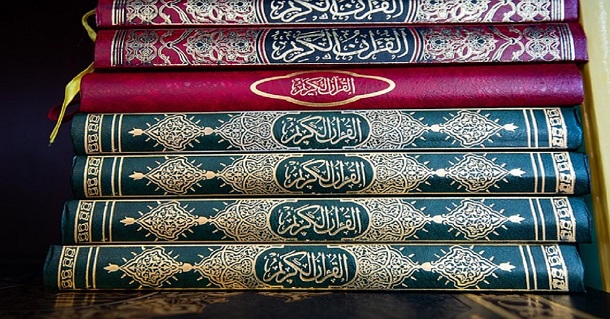Revelation Of Quran – Important Facts

The Quran is the holy book of Islam, revealed to the Prophet Muhammad (PBUH) over 23 years. The revelation of Quran holds immense significance in Islam, as it is considered the ultimate source of guidance for Muslims. Understanding the Quran’s revelation involves delving into its historical context, the process of revelation, and its impact on the early Muslim community. By exploring these aspects, one can appreciate the profound importance of the Quran in shaping the religious, social, and moral fabric of Islamic civilization.
The revelation of Quran began in 610 CE, in the cave of Hira near Makkah. The first verses revealed were from Surah Al-Alaq, marking the beginning of the divine communication. The Quran’s revelation continued in stages, addressing various issues faced by the nascent Muslim community. This gradual revelation ensured that the followers could absorb and implement the teachings effectively. Each revelation came in response to specific events or questions, providing timely guidance and solutions. The significance of the Quran revelation lies not only in its content but also in the manner it was revealed, fostering a deep connection between the divine message and the believers.
Historical Context of the Revelation of Quran
The Quran revelation occurred during a time of great social, political, and religious upheaval in the Arabian Peninsula. Pre-Islamic Arabia, known as the Jahiliyyah (Uncivilized) period, was marked by tribal conflicts, idolatry, and moral decadence. The revelation of the Quran aimed to address these issues and bring about a transformative change. It called for the worship of one God, ethical conduct, and social justice. The Quran’s message challenged the prevailing norms and traditions, advocating for a monotheistic belief system and the abolition of practices like female infanticide and usury.
The historical context of the Quran revelation also includes the political landscape of the time. The Arabian Peninsula was divided into numerous tribes, each with its own customs and rivalries. The Quran’s revelation sought to unite these tribes under the banner of Islam, promoting peace and solidarity. It provided a comprehensive legal and ethical framework, addressing issues such as marriage, inheritance, and trade. By offering a unifying vision and a set of principles, the Quran played a crucial role in transforming the fragmented society into a cohesive and morally upright community. The historical context underscores the revolutionary impact of the Quran revelation on the Arabian society.
The Process of Revelation
The process of Quran revelation involved the angel Gabriel (Jibril) conveying God’s message to the Prophet Muhammad (PBUH). This divine communication occurred through various forms, including direct speech, visions, and inspirations. The Prophet would then recite the revealed verses to his followers, who memorized and recorded (wrote) them. The revelations were often accompanied by physical and emotional experiences, reflecting the gravity and intensity of the divine encounter. The Prophet’s role was not only to convey the message but also to exemplify its teachings through his actions and decisions.
The gradual nature of the Quran revelation allowed the early Muslim community to understand and implement the teachings progressively. The revelations addressed specific situations, questions, and challenges faced by the believers, providing practical guidance. This process ensured that the divine message was relevant and applicable to the community’s evolving circumstances. The Quran’s verses were compiled into a written form during Prophet’s life under his supervision, ensuring their preservation and compilation in a book form. The meticulous process of revelation and compilation highlights the divine origin and authenticity of the Quran, emphasizing its importance as a source of guidance for all times.
Themes and Teachings of the Quran
The Quran encompasses a wide range of themes and teachings, addressing every aspect of human life. One of the central themes is the oneness of God (Tawhid), emphasizing the belief in a single, all-powerful Creator. The Quran also stresses the importance of faith, worship, and obedience to God. It outlines the principles of moral conduct, justice, and compassion, guiding individuals in their interactions with others. The Quran’s teachings on family, community, and governance provide a comprehensive ethical framework for a just and harmonious society.
The Quran revelation important facts include its emphasis on knowledge, reflection, and reason. The Quran encourages believers to seek knowledge, ponder over creation, and use their intellect to understand the divine message. It addresses issues such as social justice, economic equity, and human rights, advocating for the dignity and welfare of all individuals. The Quran also provides guidance on personal development, urging believers to cultivate virtues like patience, gratitude, and humility. By encompassing a wide array of themes, the Quran offers a holistic approach to life, guiding individuals towards spiritual growth and social harmony.
The Impact of the Quran Revelation on the Early Muslim Community
The Quran revelation had a profound impact on the early Muslim community, transforming their beliefs, practices, and social structures. The Quran’s teachings challenged the existing norms and traditions, promoting a new moral and ethical order. The early Muslims embraced the principles of monotheism, justice, and compassion, striving to implement them in their daily lives. The Quran’s guidance on social and economic matters fostered a sense of solidarity and mutual support within the community. The revelation also provided a legal framework, addressing issues such as marriage, inheritance, and dispute resolution.
The revelation of Quran includes its role in shaping the identity and cohesion of the early Muslim community. The shared belief in the Quran’s divine origin and teachings fostered a strong sense of unity and purpose. The Quran’s emphasis on justice, equality, and social welfare guided the community’s interactions and governance. The revelation also played a crucial role in the spread of Islam beyond the Arabian Peninsula, as the early Muslims carried the message to different regions. The transformative impact of the Quran on the early Muslim community underscores its significance as a source of guidance and inspiration.
The Preservation and Compilation of the Quran
The preservation and compilation of the Quran is a testament to its divine origin and authenticity. During the Prophet Muhammad’s lifetime, the Quranic verses were memorized and recorded by his companions in one book form. This effort was led by Zaid ibn Thabit, who meticulously collected the verses from various written materials and the memories of the companions. After Prophet Muhammad’s death, the first Caliph, Abu Bakr, initiated to write more copies of the Quran to safeguard its integrity and distributed various copies to different regions of the Islamic State. Later on all the copies were called backed and standardized during the Caliphate of Uthman ibn Affan, ensuring a uniform text for the Muslim community.
The revelation of Quran includes the meticulous process of preservation and compilation, which reflects the care and reverence accorded to the divine message. The Quran’s preservation through oral and written means ensured that its teachings remained intact and accessible to future generations. The standardized text has remained unchanged, providing a consistent source of guidance for Muslims worldwide. The preservation and compilation of the Quran highlight the divine protection and the community’s dedication to safeguarding the holy scripture. This process underscores the Quran’s central role in Islamic faith and practice, affirming its status as the ultimate source of guidance.
Conclusion
The revelation of Quran encompasses its historical context, the process of revelation, and its impact on the early Muslim community. The Quran’s themes and teachings provide comprehensive guidance for all aspects of life, emphasizing faith, justice, and compassion. The preservation and compilation of the Quran ensure its authenticity and accessibility for future generations. Understanding the Quran revelation is essential for appreciating its profound influence on Islamic civilization and its enduring significance as a source of divine guidance. The Quran continues to inspire and guide millions of Muslims, affirming its timeless relevance and divine origin.

2 thoughts on “Revelation Of Quran – Important Facts”